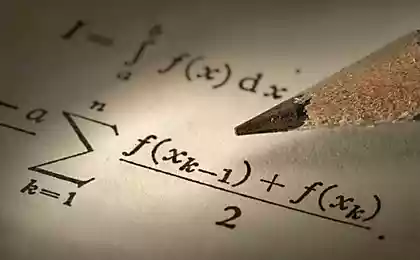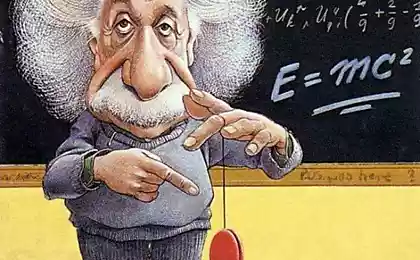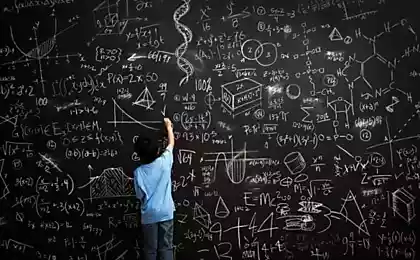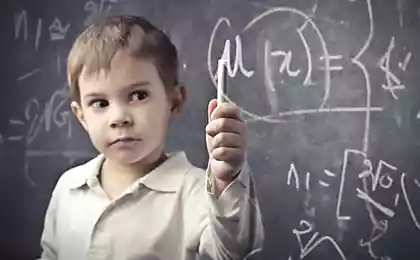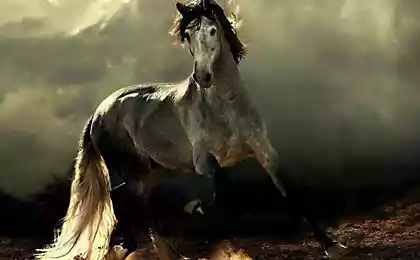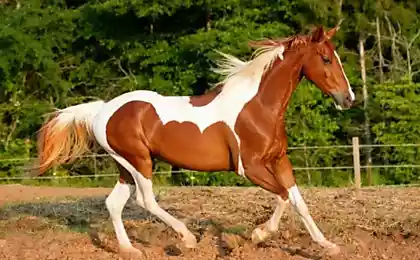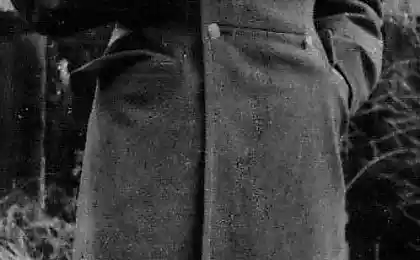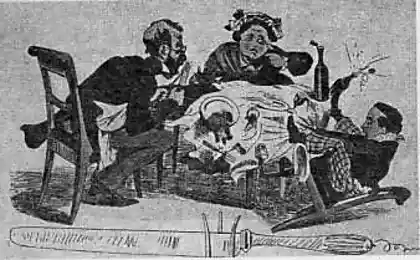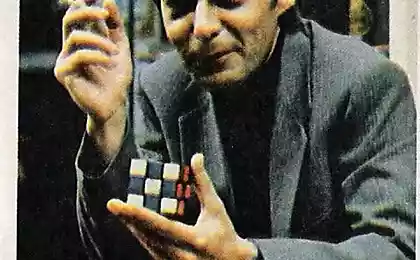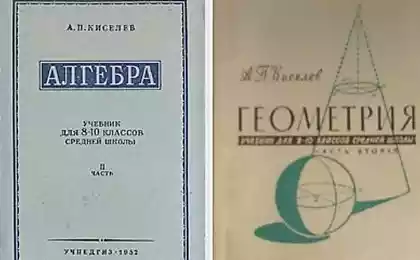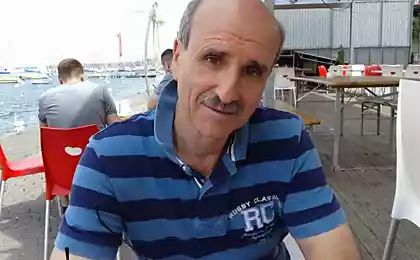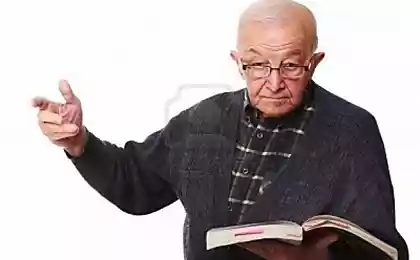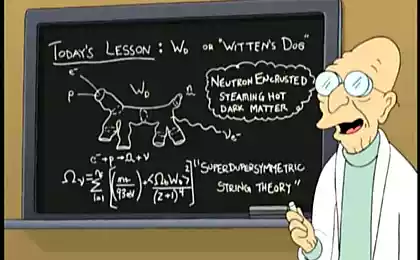218
A Gone Mystery of Daniil Harms About Horses That Even an Adult Will Not Solve Immediately
Daniil Harms had a special gift for writing for children. Harms' children's poems are known to everyone. They are short, funny, full of funny phantasmagoria and perfectly memorable. But few people know that the famous Soviet absurdist was inspired by mathematics.
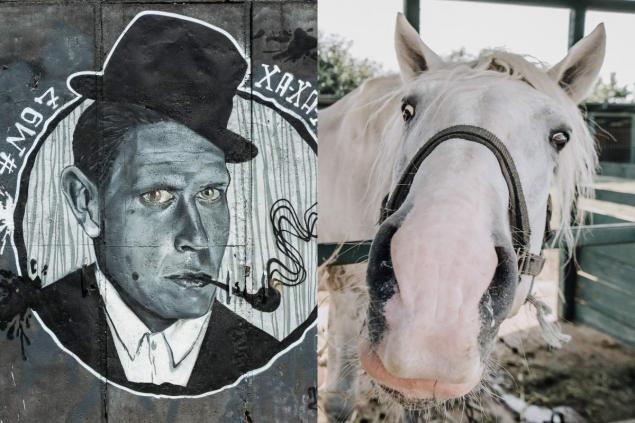
“You can’t be a mathematician without being a poet at the same time,” said Sophia Kovalevskaya. But on the other hand, being a poet, it's hard not to see the beauty of mathematics.
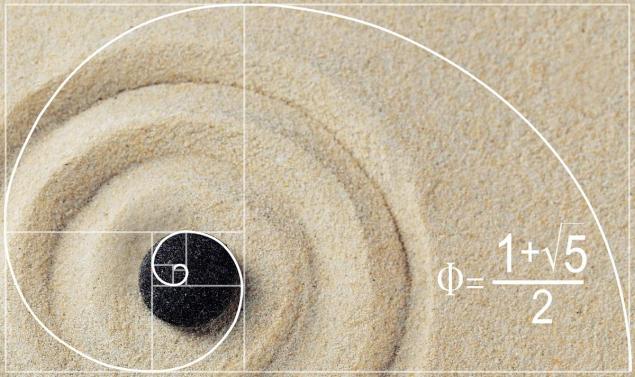
Indeed, the play of the imagination is as important in the work of a professional mathematician as it is in the work of a writer. In addition, the queen of sciences is full of such adored by Harms paradoxes. One of them was a mystery about 17 horses. This problem was published in 1928, but is still controversial. How do we divide the indivisible? What to do if you inherit your inheritance... 8.5 horses? Try to find your own answer.
The problem about horses from the magazine “Murzilka” In our village, a man died and left his sons this testament: I leave 1/2 of my inheritance to my eldest son. I leave 1/3 of my inheritance to the middle son. I leave 1/9 of my inheritance to my youngest son.”
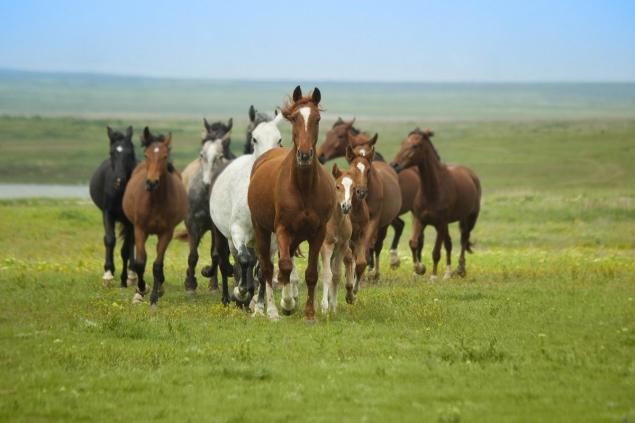
When he died, there were only 17 horses left and nothing else. The sons of 17 horses were divided among themselves. "I," said the elder, "take 1/2 of all the horses." So 17/2 is 8 1/2.”
- How can you take 8 1/2 horses? asked the middle brother. Are you going to cut the horse into pieces?
- That is true, the older brother agreed with him, only you will not take your share. 17 is not divided by 2, 3, or 9!
As the brothers reasoned, 17 is not divided into 2, 3, or 9. The nearest number to satisfy these conditions is 18. But then another horse is missing. What about it? In the mystery of Harms, an intelligent man from the outside finds a witty answer.

- That’s what, said the younger brother, I know a very intelligent man, his name is Ivan Petrovich Rasudilov, who will be able to help us.
- Well, call him, the other two brothers agreed.
The younger brother went somewhere and soon returned with a man who was riding a horse and smoking a short straw. “Here,” said the younger brother, “this is Ivan Petrovich Rasudilov.” The brethren were told their grief. He listened and said, “Take my horse, then you will have 18 horses, and divide it in peace.”
The brothers shared 18 horses. The eldest took 1/2 - 9 horses, the middle took 1/3 - 6 horses, and the younger took 1/9 - 2 horses. The brothers put their horses together. 9 + 6 + 2, it turned out 17 horses. And Ivan Petrovich got on his 18th horse and lit a straw. "Are you happy?" he asked the surprised brothers and left.
Let’s imagine the shares that each brother should get as simple fractions. The eldest has 1/2 inheritance. The average - 1/3, and the youngest - 1/9. Let us now bring the fractions to the lowest common denominator. In our case, the smallest number that is divisible by all denominators is 18.

Let us bring all the shares of the brothers to the denominator 18. We get 9/18, 6/18 and 2/18. If you add them up, you get 9/18 + 6/18 + 2/18 = 17/18. It is difficult not to notice that the numerator is exactly equal to the real number of horses in the herd. So, if the older one gets 9 horses, the middle one gets 6, and the younger one gets 2 horses, then we will divide the herd without a remainder.
Is there a fair solution at all? The trick of the Harms problem is that its condition contains an error. 1/2, 1/3 and 1/9 are three parts of the same inheritance. It is logical to assume that in sum they should be one. 9/18 + 6/18 + 2/18 = 17/18. And 17/18 is still less than 1.

Thus, legally, the father of the brothers did not distribute all his property among them, but only part of it (17/18)! And the remaining 1/18 should probably go to someone else. So, according to Harms, the brothers divided the entire inheritance, breaking the will.
Let's try to stick to the will. So, if there is no legal basis to divide 1/18 of the inheritance, then one horse (17:18 = 0.94) must remain a draw. Now let's deal with the brothers' loaves. The elder is assigned 17:2 = 8.5 horses. The average is 5.6 and the youngest is 1.88.
Cutting horses apart is certainly not an option. Round in the big side too, because this way we will divide the unaccounted 1/18 part of the inheritance. It remains to sell 16 horses and, if possible, accurately divide the proceeds according to the shares of the brothers. And if an indivisible balance remains, it can be spent, for example, on treats for all heirs.
It happens that the most difficult is unexpectedly the simplest. For example, it seems easy to solve equations with fractions and variables. And at the same time, you fall into a stupor when the cashier says that there is no change, and for some reason requires another ten rubles. Our task today is just one of the same series. It doesn't seem complicated. But once you start counting how much money is in the cash register, you don’t even know what is right and what is not.

“You can’t be a mathematician without being a poet at the same time,” said Sophia Kovalevskaya. But on the other hand, being a poet, it's hard not to see the beauty of mathematics.

Indeed, the play of the imagination is as important in the work of a professional mathematician as it is in the work of a writer. In addition, the queen of sciences is full of such adored by Harms paradoxes. One of them was a mystery about 17 horses. This problem was published in 1928, but is still controversial. How do we divide the indivisible? What to do if you inherit your inheritance... 8.5 horses? Try to find your own answer.
The problem about horses from the magazine “Murzilka” In our village, a man died and left his sons this testament: I leave 1/2 of my inheritance to my eldest son. I leave 1/3 of my inheritance to the middle son. I leave 1/9 of my inheritance to my youngest son.”

When he died, there were only 17 horses left and nothing else. The sons of 17 horses were divided among themselves. "I," said the elder, "take 1/2 of all the horses." So 17/2 is 8 1/2.”
- How can you take 8 1/2 horses? asked the middle brother. Are you going to cut the horse into pieces?
- That is true, the older brother agreed with him, only you will not take your share. 17 is not divided by 2, 3, or 9!
As the brothers reasoned, 17 is not divided into 2, 3, or 9. The nearest number to satisfy these conditions is 18. But then another horse is missing. What about it? In the mystery of Harms, an intelligent man from the outside finds a witty answer.

- That’s what, said the younger brother, I know a very intelligent man, his name is Ivan Petrovich Rasudilov, who will be able to help us.
- Well, call him, the other two brothers agreed.
The younger brother went somewhere and soon returned with a man who was riding a horse and smoking a short straw. “Here,” said the younger brother, “this is Ivan Petrovich Rasudilov.” The brethren were told their grief. He listened and said, “Take my horse, then you will have 18 horses, and divide it in peace.”
The brothers shared 18 horses. The eldest took 1/2 - 9 horses, the middle took 1/3 - 6 horses, and the younger took 1/9 - 2 horses. The brothers put their horses together. 9 + 6 + 2, it turned out 17 horses. And Ivan Petrovich got on his 18th horse and lit a straw. "Are you happy?" he asked the surprised brothers and left.
Let’s imagine the shares that each brother should get as simple fractions. The eldest has 1/2 inheritance. The average - 1/3, and the youngest - 1/9. Let us now bring the fractions to the lowest common denominator. In our case, the smallest number that is divisible by all denominators is 18.

Let us bring all the shares of the brothers to the denominator 18. We get 9/18, 6/18 and 2/18. If you add them up, you get 9/18 + 6/18 + 2/18 = 17/18. It is difficult not to notice that the numerator is exactly equal to the real number of horses in the herd. So, if the older one gets 9 horses, the middle one gets 6, and the younger one gets 2 horses, then we will divide the herd without a remainder.
Is there a fair solution at all? The trick of the Harms problem is that its condition contains an error. 1/2, 1/3 and 1/9 are three parts of the same inheritance. It is logical to assume that in sum they should be one. 9/18 + 6/18 + 2/18 = 17/18. And 17/18 is still less than 1.

Thus, legally, the father of the brothers did not distribute all his property among them, but only part of it (17/18)! And the remaining 1/18 should probably go to someone else. So, according to Harms, the brothers divided the entire inheritance, breaking the will.
Let's try to stick to the will. So, if there is no legal basis to divide 1/18 of the inheritance, then one horse (17:18 = 0.94) must remain a draw. Now let's deal with the brothers' loaves. The elder is assigned 17:2 = 8.5 horses. The average is 5.6 and the youngest is 1.88.
Cutting horses apart is certainly not an option. Round in the big side too, because this way we will divide the unaccounted 1/18 part of the inheritance. It remains to sell 16 horses and, if possible, accurately divide the proceeds according to the shares of the brothers. And if an indivisible balance remains, it can be spent, for example, on treats for all heirs.
It happens that the most difficult is unexpectedly the simplest. For example, it seems easy to solve equations with fractions and variables. And at the same time, you fall into a stupor when the cashier says that there is no change, and for some reason requires another ten rubles. Our task today is just one of the same series. It doesn't seem complicated. But once you start counting how much money is in the cash register, you don’t even know what is right and what is not.
Luxury chocolate dancer "Forest Song" according to the recipe of the Ukrainian hostess
The girl from the laundry told what things can ruin the washing machine
